The words on ingredient labels can be misleading. The word fragrance, a misleading term, is too often overlooked, as it might really indicate a combination of 100 or more different chemicals. Many of them may be toxic or harmful like phthalates, petroleum based ingredients, or flowers sprayed with chemicals or fertilizer. Organic perfumes are fragrance-free and reduce the risks associated with cosmetic toxicity. Organic vs. natural though? What is truly non-toxic and chemical free? Do they even work?
The fancier the bottle—the more the ambiguous ‘fragrance’ exists. Ever notice how your memory blurs upon entering the first floor of Macy’s or Bloomingdale’s? Spray upon spray, masks appear and voila: You have the cosmetics/ fragrances department.
Perfume requires only three fundamental ingredients: 1. Essential oils 2.Distilled water 3. Grain alcohol. Natural perfumes composed of essential oils from plants and flowers can energize, unlike harmful ingredients, and are therapeutically potent.
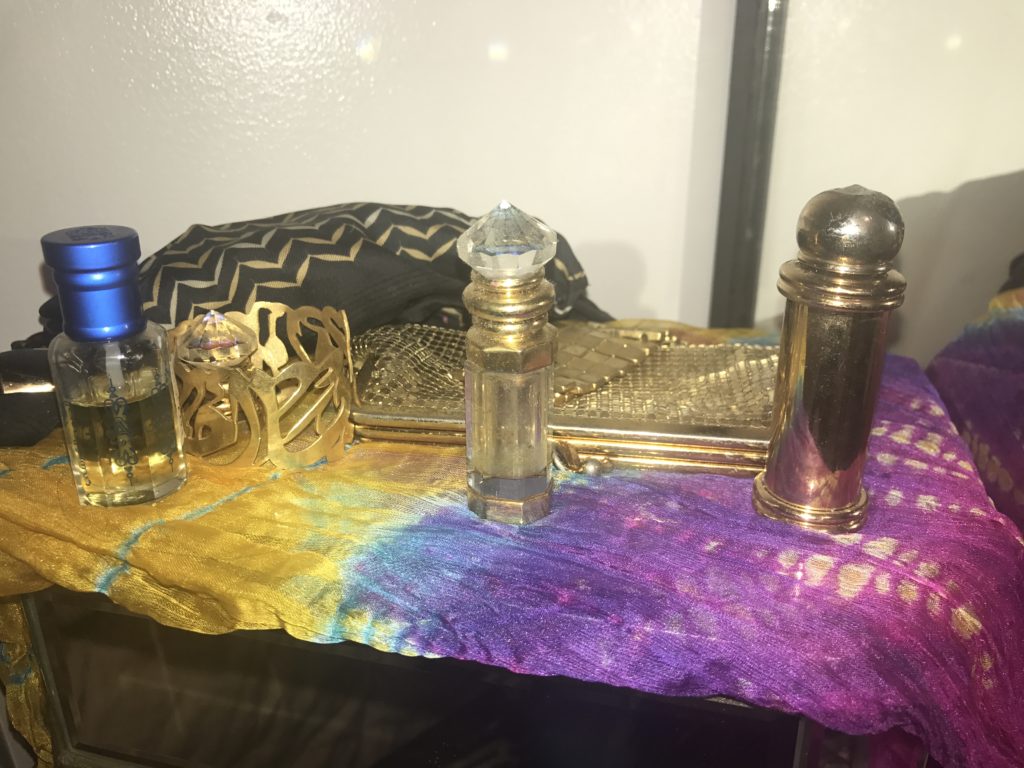
In 1966, the Hartford Research Institute for Fragrance Materials (RIFM) was formed to test perfume product safety, but only 1,300 of 5,000 materials used under the fragrance heading were tested. Furthermore, RIFM only tested skin effects rather than potential neurological, circulatory or respiratory adversities. No wonder my eyes itch and water up when I spray most perfumes! I’d come to detest and mistrust them for that reason before even conducting this research.
EPA research in 1991 confirmed the presence of Hartford Vermont science lab in 1998 showed that chemical emissions from various fragrances irritate heart and sensory glands, and contribute to premature memory loss, brain dysfunction.
Although I cannot link a day’s attention deficit to a single spray of perfume, I suspect that it benefits me and those around me very little. In fact, most people who are sensitive and can end up with eczema, asthma, nasal rhinitis. So what’s the point? Your own smell is organic, after all.
This is true of all scented products. A perfume can say “fragrance free” and still have masking chemicals, so the way to go is with products labeled without perfume.” While organic perfumes limit the additives found in commercial brands and ensure that the scents, oils, floral ingredients are pesticide-free, “fragrance” is the big thing to avoid. Essential oils are the purest way to fragrantly enhance us.
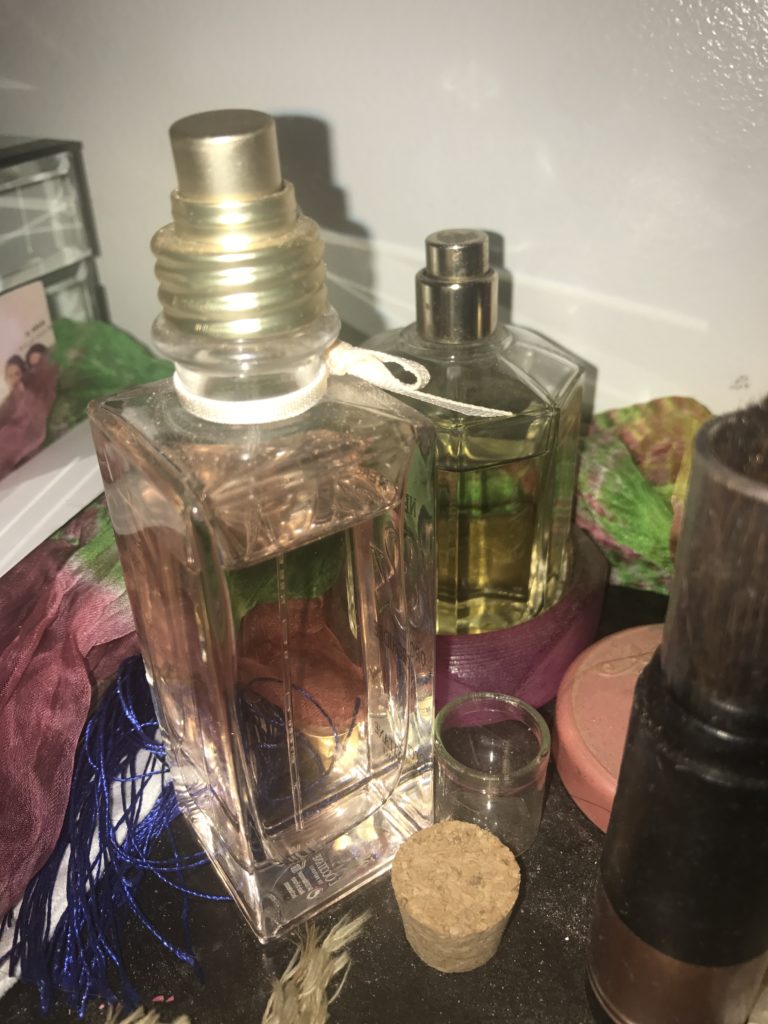
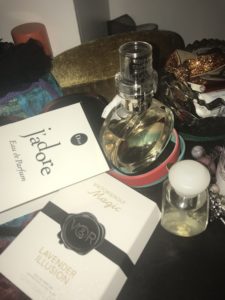
Rarely will a designer scent list out harmful additives like Acetylethyltetramethyltetralin (AETT), Musk ambrette, 6-Methylcoumarin (6-MC), 6-Methylcoumarin (6-MC), Nitrosamines, and Dioxane, plus any other toxic chemicals unregulated by the FDA. This lack of regulation is a result of the fact that RIFM only recommends to the FDA (rather than advising or enforcing) what chemicals perfumes ought to contain. There are masked, potentially dangerous additives in perfume, often masked under the term fragrance. Converting to natural fragrances or “perfume free” products is cheaper, safer, and enhances our lives. After all- do you see bergamot, lily, jasmine or calming sandalwood on EPA ban lists?
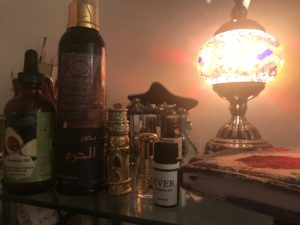
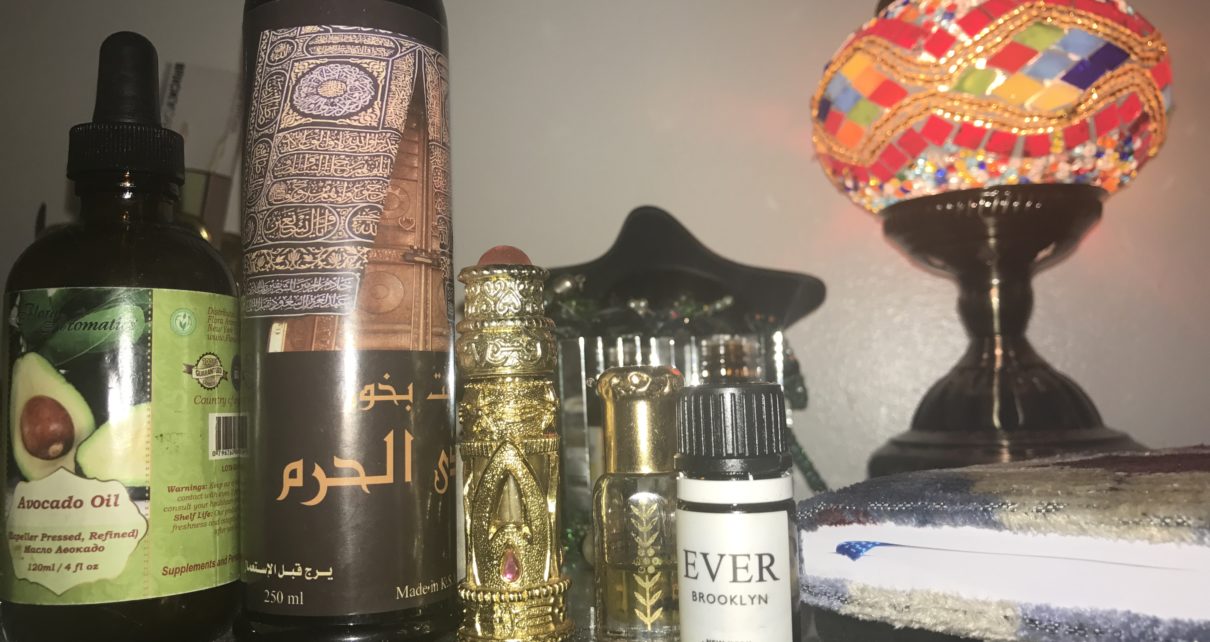



I spent a lot of time to locate something like this